Mahjong is a traditional Chinese puzzle game available for download from the PlayStation Store for the PS4. I have played Mahjong games since the retro days of the Amiga and 3DO all the way through to the multitude of Mahjong games that have most recently arrived on the Vita, so I was naturally very happy to see Mahjong finally arrive on PS4, but can Mahjong on PS4 match up to or perhaps even better the true Mahjong experience set by the games that have went before it?
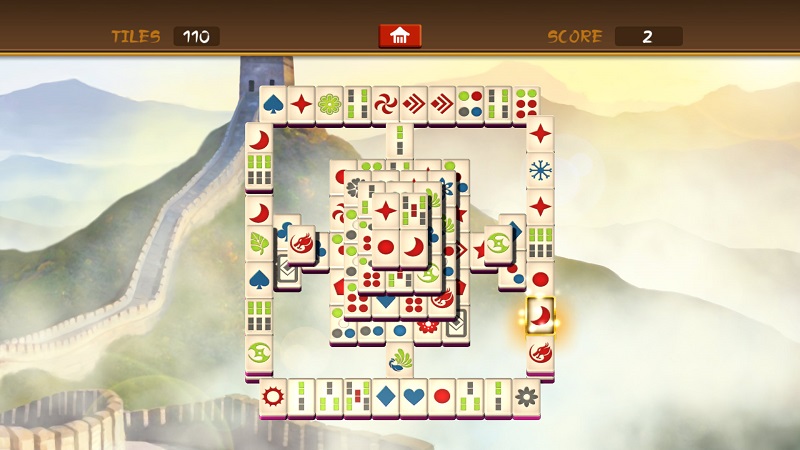
There are 70 levels in total with the second level onwards only being unlocked when the previous level has been completed. Mahjong has the same traditional core premise as all Mahjong games as the player attempts to pair matching tiles together. The real puzzle element of the gameplay is provided by the traditional rule of only being able to pair matching tiles from the outer edge of any group of tiles. There are three basic tiles including character, stones and bamboo with each type of basic tile consisting of nine tiles numbered from one through nine in Chinese characters. There are also special tile families such as seasons, dragons, winds and flowers with some special tiles containing letters that can appear differently from one another in their appearance by their colour and design but can still be paired together which is something to certainly be mindful of when trying to search for the next matching pair of tiles.
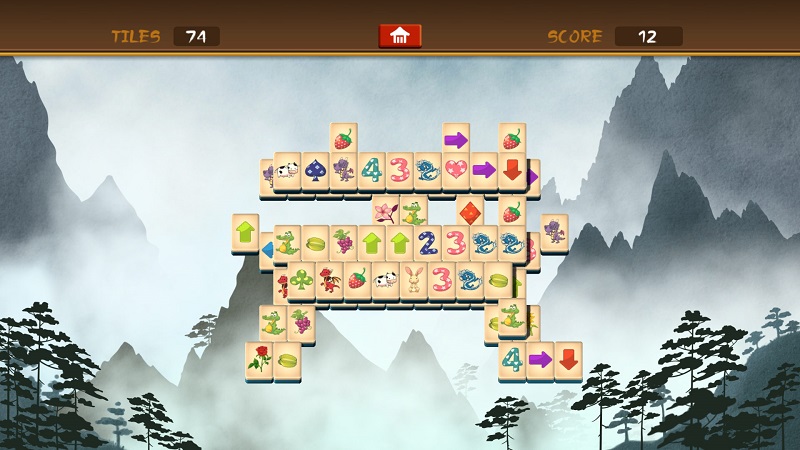
There are four sets of tiles with a wide assortment of tile categories including traditional tiles, while the three further tile sets include numbers, animals, counters, shapes and more besides. Each tile set is completely unique in design which really adds another layer to the gameplay as it means you can replay levels with different designs across all of the tiles resulting in further variation of tile positioning. Re-shuffling of tiles is not allowed during a level in such circumstances as running out of possible tile pairings, although tiles automatically re-shuffle at the start of each level you have already played in order to not replicate the same positioning of the tiles; therefore freshening up the gameplay even further, rather than just being about memorising the positioning of the matching tiles by parrot fashion.
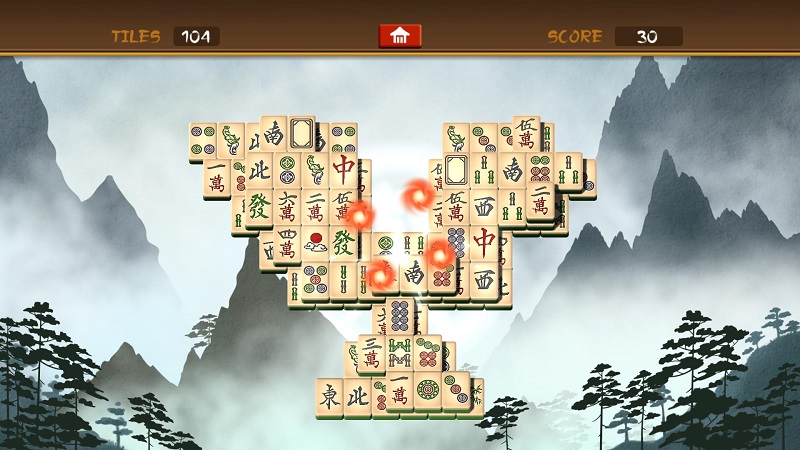
Bonus points are awarded for consecutively matching identical pairs and consecutively pairing specific types of special tiles together such as flowers or seasons, although asking for a hint on the next possible pairing of tiles will result in a costly 200 points deduction from your points tally for the level you ask for a hint within.
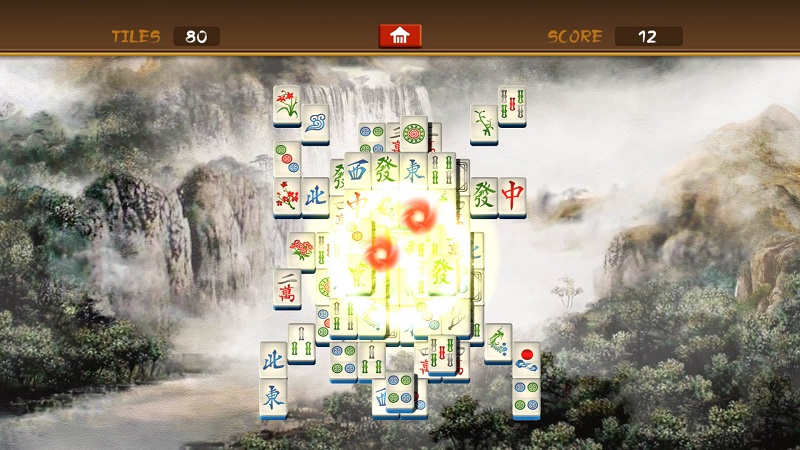
The controls are well mapped to the DualShock 4 controller as they are easy to learn. The control scheme consists of changing the direction of the left analogue stick or alternatively pressing up, down, left or right on the d-pad to move the cursor in order to have a tile highlighted for selection; pressing X to select a tile; pressing O to cancel the selection of a tile; pressing triangle to be provided with a hint for the next possible pairing of tiles; pressing the share button takes you to the share feature menu; and pressing the options button to display the pause menu.
There is no touch pad implementation which is disappointing given that Mahjong games naturally combine perfectly with a touch screen as showcased throughout multiple Mahjong games on Vita. Tapping the touch pad could have provided an alternative for selecting and cancelling the selection of a tile as well as swiping in any direction subtly or longer and wider swipes to move your cursor along a smaller or much larger amount of space in order to highlight a tile for selection. There is no light bar implementation which in between attempting to pair tiles together could have produced a neutral colour of yellow which represents Earth and heroism in China, a light tone of green when successfully matching a pair of tiles or red when a pair of tiles do not match, while there is also no vibration, although that can be forgiven as the pressure of vibration would not be in conjunction with the relaxation of Mahjong.
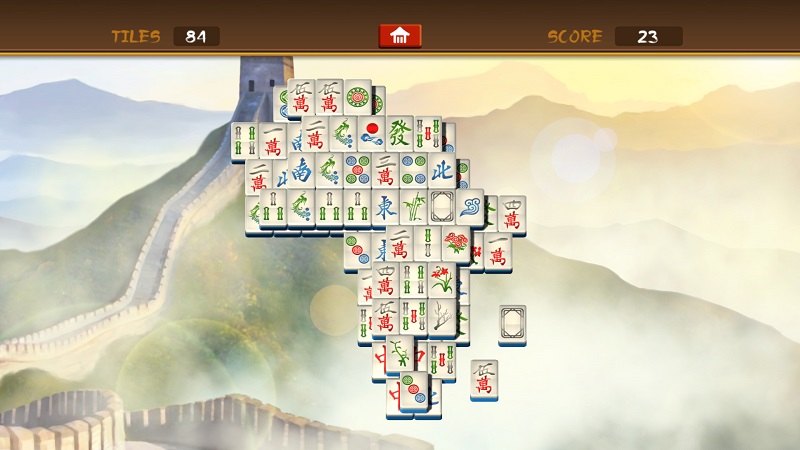
Graphically, Mahjong provides everything that you would anticipate to see from a Mahjong game with colourful and detailed tile sets and breathtakingly beautiful picturesque backgrounds such as the amazing vista of the Great Wall of China, a tranquil lake, mountains and a waterfall with moving elements to the backgrounds such as mist, water rippling, foliage and lens flare that really authenticates the experience of Mahjong.
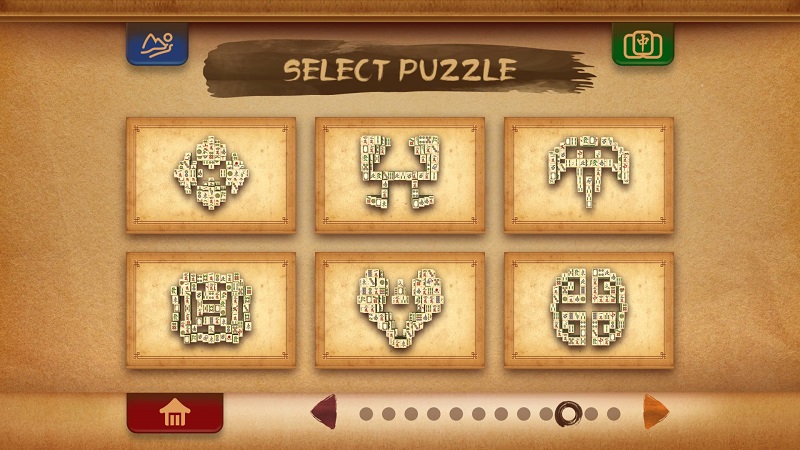
The presentation of the game is exceptional with a great user interface across various menus such as the main menu, level selection menus, options menus, local and online leaderboards, how to play menus and gameplay menus with support for navigation via the left analogue stick, directional pad and face buttons, although it does not include support for navigation via the right analogue stick or touch pad. The background of the menu screens looks very colourful and vibrant such as the main menu that contains a Mahjong logo slowly moving up and down with the O in Mahjong replaced with a rotating yin yang symbol that rather appropriately reflects the Chinese philosophy of opposite forces being able to attract, while a pair of Mahjong tiles spin around next to each other on top of a scroll containing decorative patterns and artwork.
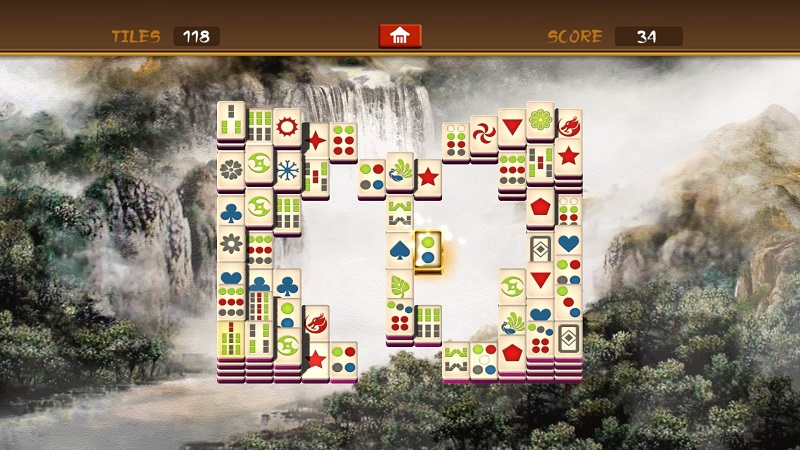
The audio consists of the style of music that you would anticipate a Mahjong game to contain as it has a laid back and relaxing quality to it which ties in with the graphics to provide an authentic Mahjong experience. There are also sound effects for manoeuvring around the tiles, choosing the first tile and choosing the second tile to pair it with, successfully matching a pair of tiles together and cancelling the use of a tile. There is no DualShock 4 speaker implementation which could have produced specific sound effects such as when a pair of tiles is successfully paired together or the relaxing music.
The trophy list includes 10 trophies all of which are made up of silver trophies. The entire trophy list can be earned naturally by completing all of the levels including a silver trophy for clearing 1 level, 5, 10, 15, 20, 30, 40, 50, 60 and 70 levels respectively. It is estimated that depending upon skill and a good trophy guide to provide some helpful tips that it would take between 10 to 15 hours to 100% the trophy list.
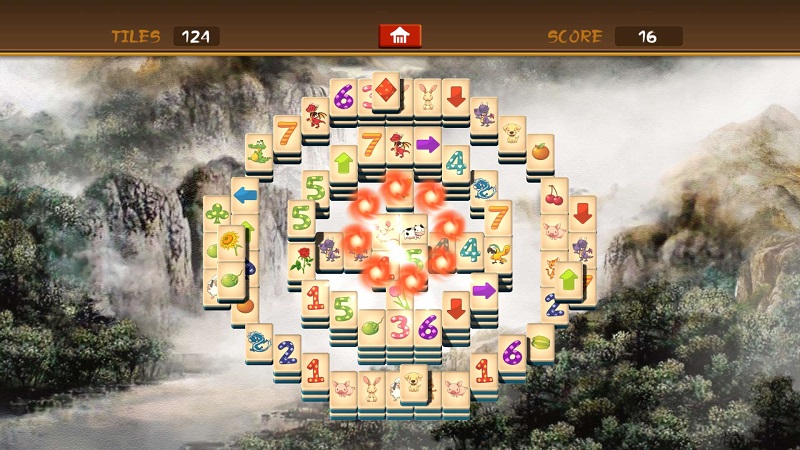
There are no difficulty levels, although the difficulty curve increases as you progress through the game as the levels become harder such as increasing the amount of layered tiles resulting in each pairing of tiles being just as important to remove tiles from the top layer to maximise the potential of completing the level, rather than unfortunately being forced to restart the level from the beginning despite being on the brink of completing it. The point being is that this is still essentially Mahjong and if you are pretty good at spotting the matching pairs of tiles, then you will still be able to progress beyond such complexities, so while there is technically an ever increasing difficulty curve; it will really depend upon your own level of skill at playing Mahjong as to whether you feel any difference from level to level. There are also the added challenges of tiles being rearranged for every occasion you repeat a level in order to remove the factor of any possibility of a player remembering each of the matching pairs of tiles, while you are unable to re-shuffle any tiles during the level which if anything makes every tile pairing significantly matter towards the success or failure of each level.
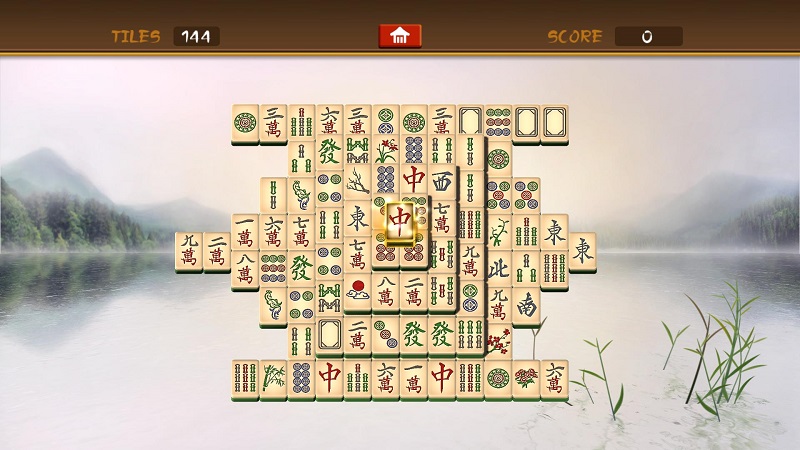
There are leaderboards which focuses on top 10 local offline rankings for anyone who has completed any of the 70 levels on that console as well as top 10 online rankings for your PSN friends and global rankings for everyone who has completed any of the 70 levels with each leaderboard containing each player’s rank; name; and their score with the positioning of each player based upon their total points in each of the 70 levels totalling to 70 offline leaderboards and 140 online leaderboards.
There are no local or online multiplayer modes which is a bit disappointing as it would have added another competitive edge to the gameplay such as a local and online battle system in which you and your opponent are attempting to complete the level first and the ability for one player to make it more difficult for their opponent by going on a run of 10 rapid consecutive tile matches; sending more tiles over to your opponents’ screen in the process. You could even perhaps bet some of your points tally earned from the single player or the previous round of multiplayer with customisation in the form of how many consecutive rounds you prefer to play, specific objectives and how many points you want to bet on the outcome.
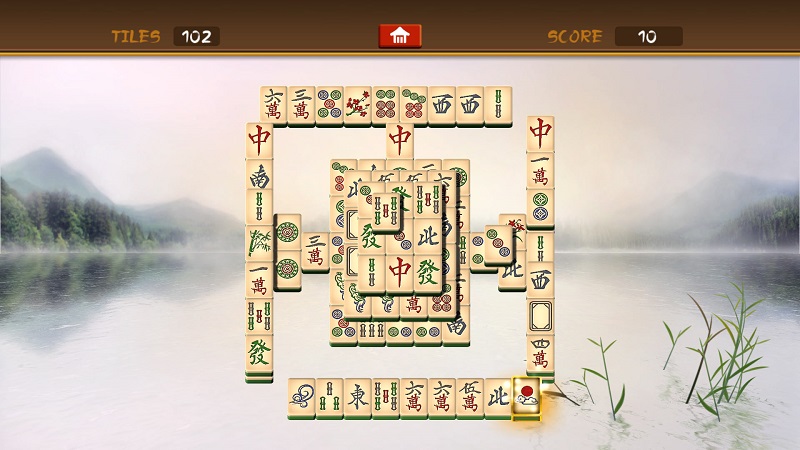
Mahjong maintains the tradition of Mahjong games by having a great amount of replayability with 70 levels including a points scoring system which is shared on local and online leaderboards to truly represent your degree of success which will have players returning to levels to improve their points scoring performance in every level. There are also four backgrounds and four unique tile sets as well as a rearrangement of tiles every time a player replays a level that keeps each level looking fresh with all features collectively providing many hours worth of replay value.
It would have been amazing for Mahjong to have included a Time Trial mode for completing each level within a set amount of time; a variety of objectives such as scoring a certain points total for each level; difficulty levels for the normal mode to have an increased number of tiles and the Time Trial mode to afford less time for each level to be completed within in addition to the increase in tiles and harder to achieve objectives; a set of further local and online leaderboards for Time Trial mode; and the inclusion of local and online multiplayer.
Analysis
- Title: Mahjong
- Developer: Sanuk Games
- Publisher: Bigben Interactive
- System: PS4
- Format: PSN Download
- Cross-Buy: No
- Cross-Play: No
- Players: 1 (Online Leaderboards)
- Hard Drive Space Required: 523.6MB











I’m at level 58 now and once I got a score of 1300 and once 600 and no idea why. The scoring seems to be a hidden algorithm because in almost every case, I match 4 at a time (rather than 2). I wish it would be displayed in the instructions so one could know how to improve score.